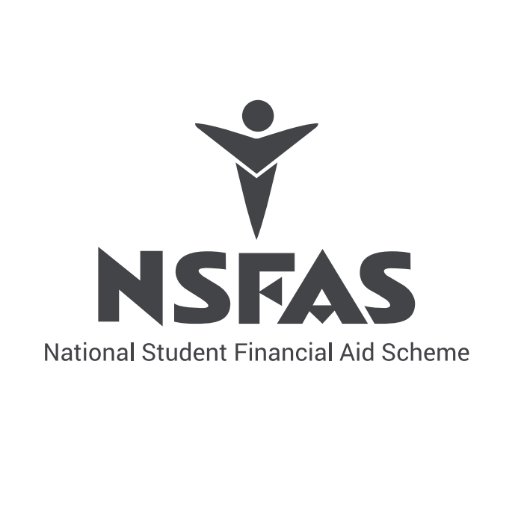
With the changes made to the National Student Financial Aid Scheme (NSFAS) in the 2021 academic year, funding for postgraduate studies has become significantly harder to secure. In this article, we delve deeper into this issue and explore alternative options for financing your postgraduate education.
Understanding NSFAS Funding for Postgraduate Studies
In the past, NSFAS provided funding for specific postgraduate programs, including Masters, Honors, and PhD programs. However, due to recent changes, NSFAS no longer covers any postgraduate studies. It is important not to rely on NSFAS for funding your postgraduate education, as this is no longer an available option.
Exploring Alternative Funding Sources
Fortunately, there are other funding opportunities in South Africa that can assist you in financing your postgraduate qualifications. Let’s take a look at some of the options:
1. National Research Fund (NRF) Bursaries
The National Research Fund (NRF) offers bursaries in various STEM fields as well as some humanities research fields that benefit South Africa. Exploring the bursaries offered by NRF could provide you with financial assistance for your postgraduate studies.
2. Funza Lushaka Bursary
If you are pursuing a postgraduate qualification in the field of Education, the Funza Lushaka Bursary is a viable option. This bursary specifically supports students in the Education field.
3. Other Bursaries, Scholarships, and Student Loan Programs
Besides NSFAS, there are numerous other bursaries, scholarships, and student loan programs available in South Africa to help finance your postgraduate studies. Conduct thorough research to discover additional opportunities. Additionally, it is recommended to reach out to your institution to explore specific funding options they may have.
The UNISA Postgraduate Bursary: A Viable Alternative
Consider studying through the University of South Africa (UNISA) as an alternative for your postgraduate studies. UNISA offers the UNISA Postgraduate Bursary, a financial aid program aimed at eligible postgraduate students. This bursary covers a portion of the tuition fees for postgraduate courses provided by the university.
The UNISA Postgraduate Bursary can cover up to 75% of the tuition fees for approved postgraduate courses, depending on the availability of funds. However, students are responsible for paying the remaining 25% of the tuition fees, as well as any other study-related costs such as textbooks, transportation, and accommodation. Since UNISA offers a study-from-home setup, accommodation may not be necessary, as you can conveniently study from the comfort of your own home.
Apart from tuition fees, the UNISA Postgraduate Bursary may also provide funding for additional expenses related to postgraduate studies, including research costs and conference attendance fees. Keep in mind that such funding is subject to availability and may require separate applications.
It is important to note that the UNISA Postgraduate Bursary is a competitive program, and not all eligible students will receive funding. The selection process is based on academic merit, financial need, and other eligibility criteria.
Degrees Not Funded by NSFAS
While NSFAS provides funding for a wide range of undergraduate degrees in various fields, there are certain qualifications that are not eligible for NSFAS funding. These include short courses, non-degree programs such as diplomas and certificates, and skills development programs that do not lead to a full degree. Additionally, NSFAS does not fund a second degree or diploma if you already hold one.
Moreover, it’s worth noting that NSFAS does not support part-time studies, as its program is designed to assist full-time students. Furthermore, NSFAS funding is limited to public universities and TVET colleges in South Africa, and it is only available to South African citizens and permanent residents.
Please remember that the list above is not exhaustive, and NSFAS funding is subject to availability and specific eligibility criteria. It is strongly recommended to confirm whether your chosen course of study is eligible for funding by consulting NSFAS or your preferred institution.
The Status of PGCE Sponsorship by NSFAS
In the past, NSFAS sponsored the Postgraduate Certificate in Education (PGCE); however, as of the 2021 academic year, NSFAS no longer provides coverage for postgraduate programs, including the PGCE. If you are pursuing a PGCE, don’t despair, as the Funza Lushaka program may offer some coverage for eligible students in this field. Additionally, there are other bursary and scholarship programs dedicated to supporting education-related studies. Student loans can also be considered as an option to cover your educational expenses.
Exploring Funding Options for Your Postgraduate Studies
Securing funding for your postgraduate studies can be a challenging process. While NSFAS no longer offers bursaries for postgraduate fields in South Africa, there are alternative options available to assist you. Start by checking with your chosen institution for in-house scholarship and bursary opportunities. Additionally, don’t hesitate to explore other programs offering financial support for tertiary education to South African students in need.
Does NSFAS Fund Advanced Diplomas?
While NSFAS does not typically fund advanced diplomas, there may be specific circumstances where the fund considers providing funding for advanced diploma programs. However, these situations are rare and evaluated on a case-by-case basis.
Conclusion
While NSFAS may no longer be a viable funding option for postgraduate studies in South Africa, it is essential to be aware of the alternatives. By conducting thorough research, exploring available bursaries, scholarships, and loan programs, and seeking guidance from your institution, you can increase your chances of securing the necessary financial assistance for your postgraduate qualifications.
Was this helpful?
0 / 0
#National Student Financial Aid Scheme (NSFAS)